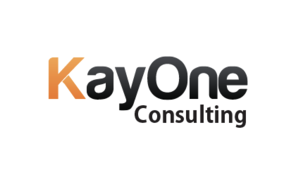20 Questions That Every Founder Should Ask an Investor
More often than not, founders prepare themselves to answer potential investors in the best way possible. However, that’s not the only way of convincing investors to give the funding that your company needs. This is because asking the right questions to your potential investors is also equally as important.
Being able to ask good questions is a skill in itself. It also allows you to kick off your relationship with potential investors in the right way. At the same time, you have to remember that not all investors are a good fit for your company. This is why you should not just accept anybody’s money.
However, what exactly are the main questions to ask an investor? Here are some examples:
1. What is Your Meeting Lead to Term Sheet Percentage?
This is one way of asking your investor about what are the odds that your meeting is going somewhere. These kinds of questions to ask an investor will provide you with a better perspective on how much no’s, and yes they give to entrepreneurs.
Getting a better idea of whether there’s a big chance that an investment meeting is going somewhere will also help in terms of the preparation you need to have for future meetings, if there are any.
[monsterinsights_popular_posts_inline]
2. What is Your Term Sheets to Check Percentage?
Similar to the first question mentioned above, this is also one of the most important questions to ask an investor. Although getting a term sheet is not equivalent to a close deal, knowing the percentage of how many term sheets they offer that converts into checks will tell you a lot.
If the investor has high term sheets to check percentage, the probability of them offering good deals is high. On the other hand, if it’s low, there’s a chance they have really bad term sheets or are very inefficient, which causes other founders to find funding somewhere else.
Moreover, if they have a low term sheet to check the percentage, you should definitely ask them the reason behind this. This is because it will tell you more about how the investor works and deals with its previous partners.
3. How Frequently Do You Lead Rounds?
How frequently do the investor lead rounds is one of the questions to ask an investor to see whether they will take you all the way. If they don’t, you will just be circling back later on. You will need a lead investor in every series. Without it, you are not going anywhere.
4. How Often Should We Schedule Meetings After the Funding?
You will need a good amount of interaction with your investors for successful funding. This is why this is one of the important questions to ask an investor because some investors may be more labor-intensive than others.
Moreover, asking this question shows how approachable the access to communication is with the investors. It also shows that they are invested in achieving success beyond the funding itself.
5. What’s Your Follow-Up Investment Percentage?
You may not necessarily need a follow-up investment from the same investor for the next series since your goals and needs might change. However, knowing your potential options is never a bad thing. This is why you shouldn’t miss out on knowing an investor’s follow-up investment percentage.
Besides, it’s much easier to get funding from the same source instead of finding a new lead and establishing a relationship with them from scratch.
6. Who Do You Think Will Be Interested In Funding This?
It is not a secret that investors have a wide range of connections among other potential investors. With this in mind, questions to ask an investor should also include who they think will be interested in funding your endeavors. Think of it as a way of getting credible leads that you can use later on.
One of the questions to ask an investor who might be interested in funding is asking them about who they usually co-invest with. You could also ask whether it would be a good fit for them to co-invest in the particular project. If not, you can ask for a recommendation of who they think might fit.
[monsterinsights_popular_posts_inline]
7. What is Your Estimated Timeline?
Some of the questions to ask an investor about their timeline include knowing where they are at with their portfolio or fund. You can also ask them if they have the cash on hand to get started.
It would also be good to ask if they are under heavy pressure to deliver big returns for their initial investments or if they are patient investors who don’t mind long-term investments.
Knowing the answers to these questions will give you a better idea of how urgent they want you to deliver results. It also allows you to assess whether your company can meet its expectations or not.
8. What Can We Do To Improve in Our Pitch?
One of the most crucial aspects of acquiring investors’ funding is having a good pitch. With this in mind, asking for feedback on how you can better improve will allow you to better shape up your pitch deck in the future.
When you ask these questions, you might get answers that you don’t necessarily agree with. However, you have to remember there’s a reason behind those criticisms. Instead of being defensive about them, the best that you can do is to consider them and make the necessary adjustments for your next pitch.
9. How Do You Expect This Investment Will Impact Your Portfolio?
Another vital question to ask an investor is to know their expectations with their investment. Obviously, they would want a return, but many investors have expectations beyond that.
Knowing these beforehand can help you assess whether you can deliver. If yes, then that’s great. If you can’t, then it’s better to turn them down from the get-go to avoid wasting anyone’s time.
10. Who Will You Assign to Sit on Our Board?
If you accept a check from an investor, it’s only natural that they will have a representative to sit on your board. The question is, who is it? It is important to know this beforehand to assess whether the person they intend to appoint fits with your board lineup.
More often than not, founders prepare themselves to answer potential investors in the best way possible. However, that’s not the only way of convincing investors to give the funding that your company needs. This is because asking the right questions to your potential investors is also equally as important.
Being able to ask good questions is a skill in itself. It also allows you to kick off your relationship with potential investors in the right way. At the same time, you have to remember that not all investors are a good fit for your company. This is why you should not just accept anybody’s money.
[monsterinsights_popular_posts_inline]
11. What is Your Meeting Lead to Term Sheet Percentage?
This is one way of asking your investor about what are the odds that your meeting is going somewhere. These kinds of questions to ask an investor will provide you with a better perspective on how much no’s, and yes they give to entrepreneurs.
Getting a better idea of whether there’s a big chance that an investment meeting is going somewhere will also help in terms of the preparation you need to have for future meetings, if there are any.
12. What is Your Term Sheets to Check Percentage?
Similar to the first question mentioned above, this is also one of the most important questions to ask an investor. Although getting a term sheet is not equivalent to a close deal, knowing the percentage of how many term sheets they offer that converts into checks will tell you a lot.
If the investor has high term sheets to check percentage, the probability of them offering good deals is high. On the other hand, if it’s low, there’s a chance they have really bad term sheets or are very inefficient, which causes other founders to find funding somewhere else.
Moreover, if they have a low term sheet to check the percentage, you should definitely ask them the reason behind this. This is because it will tell you more about how the investor works and deals with its previous partners.
13. What are Your Major Concerns?
It is good to put concerns on the table during the first meetings that you have with an investor. This will allow you to put their worries at ease on the spot instead of having them give you a soft no. At the same time, you better understand where they are coming from in terms of worries.
14. What Factors Have Made Big Differences In Your Successful Investments?
This question will provide you with an insight into what traits, tactics, and entrepreneurial movies have made their previous investment success or a flop. By knowing these, you can identify what aspects you can improve to increase your chances of success. Think of it as learning from proven and tested methods.
15. How Long Does It Usually Take You To Make a Deal?
Again, these questions to ask an investor related to the timeline of the funding. However, this is different because it’s more focused on whether the schedule they have fits your current timeline.
It is good to know whether your company and investor’s time frame fit when dealing with investments. Suppose you think that their process is abnormally long. In that case, it’s better to look for other potential investors instead of pursuing it only to find out that you are wasting valuable time.
[monsterinsights_popular_posts_inline]
16. What’s the First Thing That You Want to Happen After Closing?
These questions to ask an investor will help you set realistic expectations between all the parties involved. You should know what they expect you to do after closing and the direction your company will be taking. This will help mitigate friction later on when decisions do not line up with each other.
17. Who Will Be Approving the Investment?
It’s not an uncommon practice to send representatives of investors when doing investment meetings. This is why it’s important to ask whether the person you are talking to holds the final say in the decision-making or not. If you are dealing with the main decision-maker, you can just go all out. Meanwhile, if it’s a low-level associate, you need to know who you really need to convince and what you need to prepare to get there.
However, when asking questions regarding this, make sure to be as polite as possible. It would be difficult to burn bridges by offending the other party when you want to establish a good, harmonious relationship.
18. What Will be the Toughest Aspect of Your Due Diligence Process for Us?
Due diligence is a common practice that investors do for their own security, and it is quite understandable why they do it in the first place. However, each investor has their own due diligence method, and others might be more difficult than some. This is why it’s good to know which aspect would be hellish for your company, so you don’t get a massive surprise later on.
19. How Much Money Do You Have in Your Current Fund?
When you are meeting an investor, your ultimate goal is to get a check from them. However, that might not always be the case for the investors themselves. This is why it’s important to ask and get a good idea of their intentions when working with you.
Questions to ask an investor regarding this include asking them straight out whether they are planning to use you as leverage for fundraising for their own investors or if they really have the capacity to invest. Depending on their answer, you can make a better decision moving forward on whether they are the investors that you need for your company to achieve its goals.
[monsterinsights_popular_posts_inline]
20. Would It Be Possible To Introduce Me With an Entrepreneur in Your Portfolio that has Failed?
Questions to ask an investor like this will help you achieve two things. The first thing is that you can show your level of sophistication towards the investor. This will help you make a good, assertive impression with the investor that you are meeting with.
The second thing that you can achieve from these questions is that you can ask the entrepreneur how the investor supported them during their difficult times. This will help you know whether they will help you through it or leave you hanging. It also gives you a good idea of whether they are harmonious to work with or not.
Final Words
You have to remember that a potential investor is a potential partner. This means that you are not the only one who should be scrutinized. You need to know what are the questions to ask an investor to see whether your business principles and goals are the right fit. If you don’t, you will eventually encounter massive problems later on that won’t be easy to fix.




